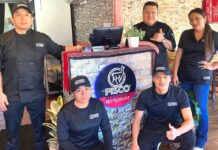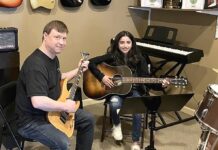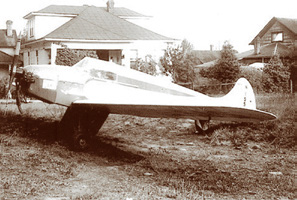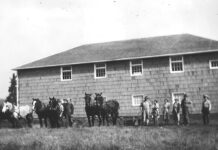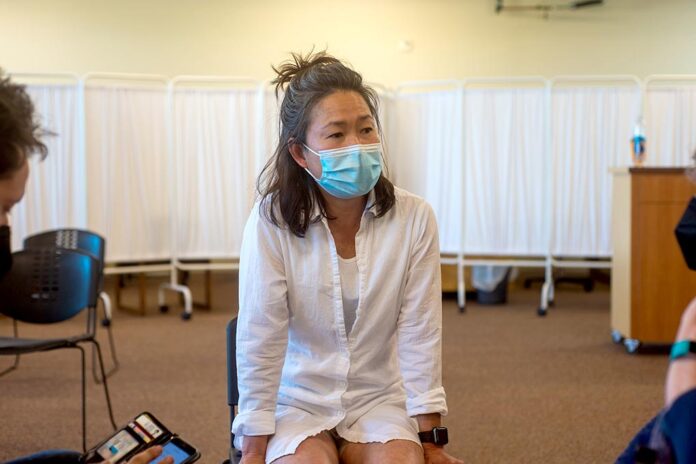
On the outskirts of Tualatin, tucked away in the basement of the Rolling Hills Church, is one of the most unique medical clinics in Washington County.
The Borland Free Clinic offers a range of medical services to uninsured and underinsured persons, free of charge and with no obligation to the patient. It is the only free clinic in the Washington County area, even though it is technically located just across the Clackamas County line.
“Five years ago, a group of people had a dream to open up a clinic and it had been going on for a long time,” said Dr. Chelsea Ban, an Ob-Gyn at Oregon Health and Science University and the clinic’s Medical Director. “They weren’t able to do it, and it was a thought for over 10 years. But five years ago, when they asked me to open it, I opened it. I like to do things and get things done. I’m not a leader, I’m a doer.”
The clinic opened with almost no money in early 2017, but a grant from the Diabetes Prevention Program kick-started the process that allowed them to start seeing patients. As patients started coming in, getting screened for pre-diabetes and enrolling in pre-diabetes classes, it enabled them to bring in more funding.
“After about a year we were able to open up a medical clinic and we had the funds for it,” Ban said. “So, that’s where it started.”
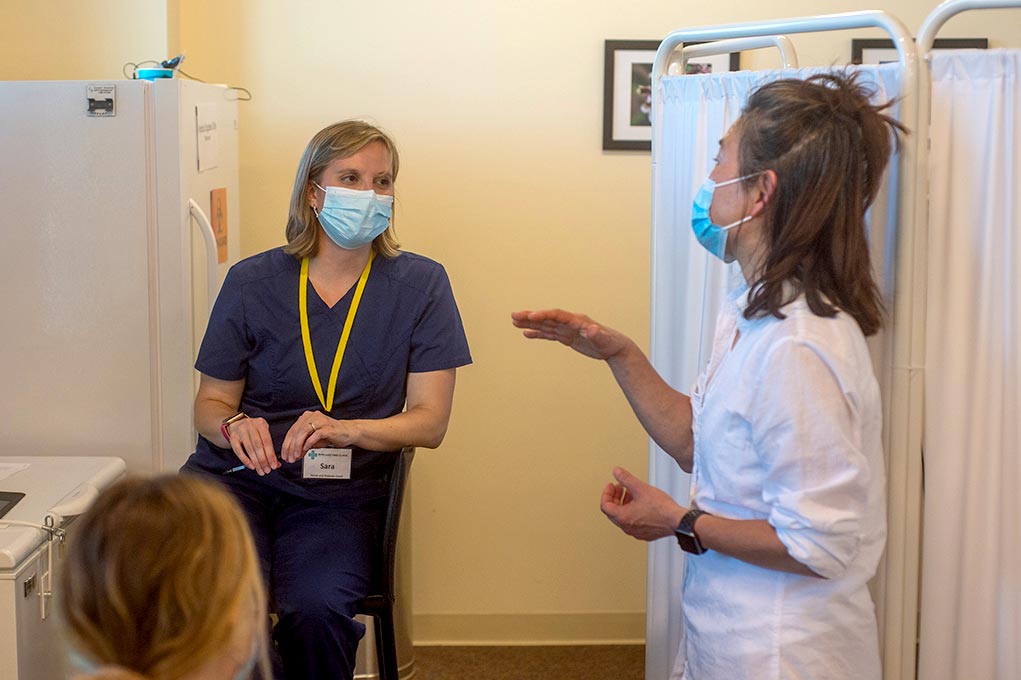
Since then, that process has grown into an annual budget of roughly $200,000, all of it from grants or donations. Now, the clinic has a paid staff of three and 110 volunteers that include medical doctors, nurses, medical assistants, physician assistants, Spanish language translators, administrators, and even custodial help. Just like the clinic’s patients, there is a place for virtually everyone.
Take Racquel Thompson for example. A U.S. Army veteran, certified emergency medical technician and a medical assistant who is currently studying in preparation for taking the Medical College Admission Test, or MCAT.
When the COVID-19 pandemic struck last year, her volunteer work at Portland’s Lines for Life, a crisis center focusing on substance abuse and suicide, was cut short, leaving her searching for a replacement.
“A big part of my life is giving back; I get joy from helping people,” said Thompson, who serves as a medical scribe for the clinic. “So, I became really kind of impacted by this. I didn’t have a place to go to weekly and just be a part of something greater.”
Registered nurse Sara Golsan is another volunteer who is driven to serve others. During the COVID-19 pandemic, she said, her regular job with the American Diabetes Association was temporarily slowed because it often involved traveling to schools and educating kids on preventing diabetes. In response, she looked for another outlet for her expertise and found it at the Borland Free Clinic.
“I’m passionate about helping people,” Golsan said. “And, also, just doing unto others as you’d have them do to you. So, I just feel like I’ve been blessed in life, and I feel like it’s time in the season to spread that out.”
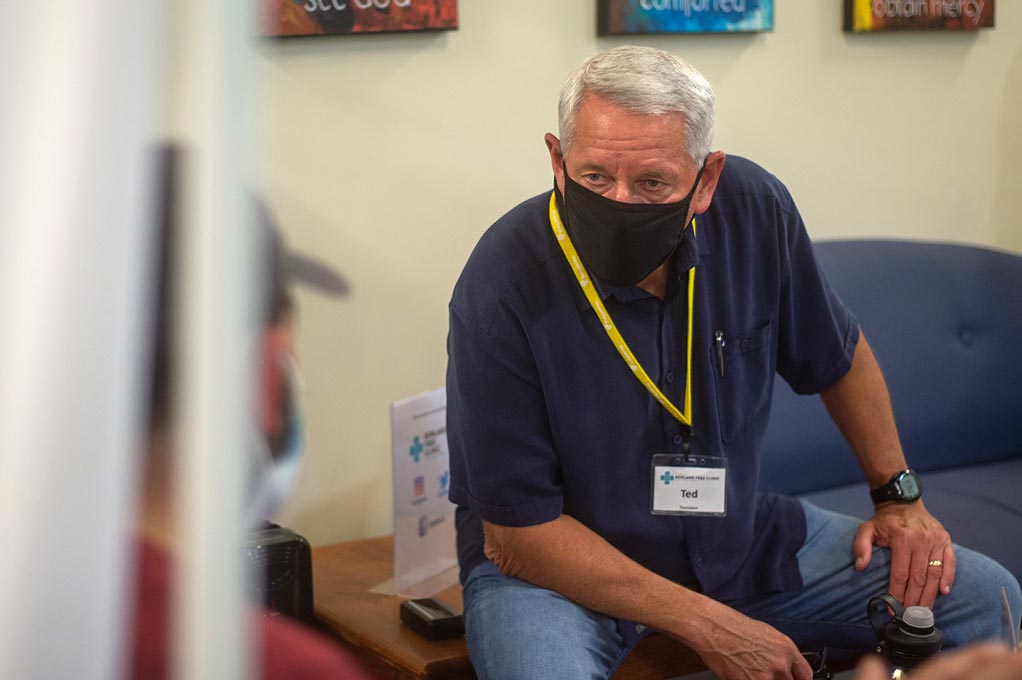
For volunteer Spanish interpreter Ted Carlson, a 35-year member of Rolling Hills Church, helping the clinic downstairs seemed like the right thing to do after meeting some of the other church members who were involved.
“God has always just placed on my heart the Hispanic community,” Carlson said. “I have a little bit of background in Spanish and I’ve lived and worked with the Hispanic community, so it just seemed like a good fit. I know last year about 50 percent of our patients were Hispanic, but it varies from week to week.”
A diverse base of patients
So, who exactly seeks out care at the Borland Free Clinic? Executive Director Sandy Kosik says it’s a diverse clientele with little in common other than an inability to afford care from the profit-driven health care system.
“We are a primary care clinic, we serve all age groups and it’s typical family medicine practice with a lot of chronic disease management,” Kosik said. “We have a significant number of patients who are diabetic and we have a significant number who are pre-diabetic.”
As Carlson noted, a large segment of patients seen here are, indeed, Latino, reflecting both local demographics as well as the fact that Latino’s disproportionately suffer from being uninsured or underinsured.
“With the Latino population and a lot of the migrant workers that come through here with all the agriculture we have around here, they don’t have health care,” she said. “Some are undocumented, but we don’t ask for ID or anything like that, and I think that’s why we’ve seen an increase. It’s been slow because with that culture, you have to build a lot of trust with them over time. Six of our seven patients today are Latino, so that’s really good because they really need the appointments.”
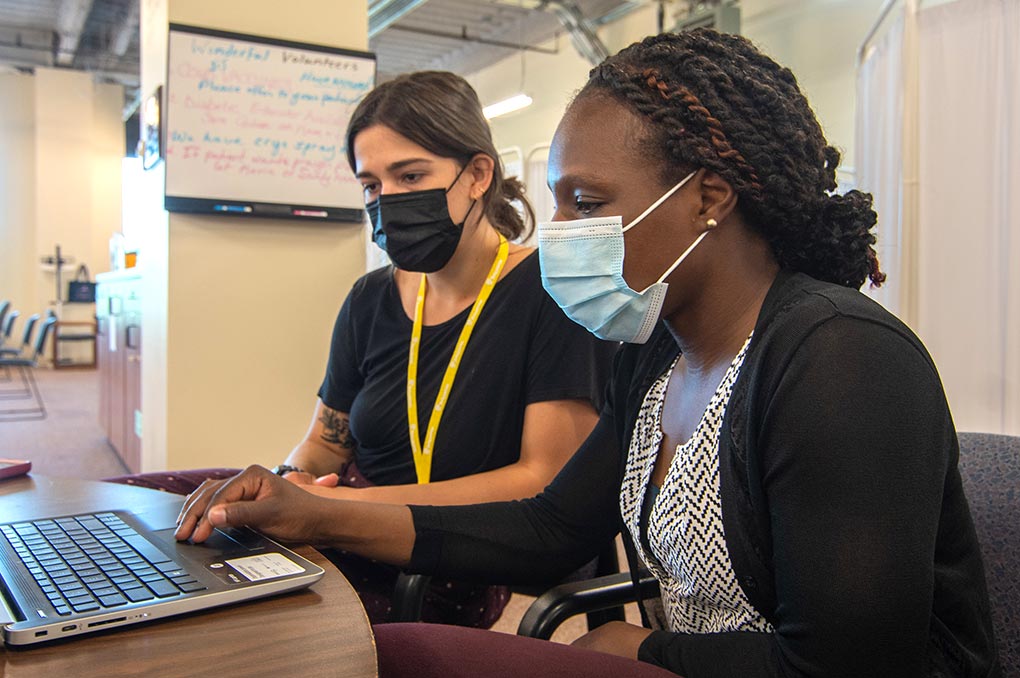
In addition to diabetes education and treatment, the clinic offers what Kosik calls “run-of-the-mill stuff” that includes basic treatment and medication for high blood pressure, acute respiratory illnesses and other common ailments. The clinic does not have an X-ray machine, but it does have an electrocardiogram, or EKG monitor to check for potential heart troubles. Most care requiring a specialist is referred out using a nonprofit group called Project Access, which connects people with providers who have offered their services for low-income patients.
Other clinic volunteers include a podiatrist for foot issues and several physical therapists. Mobile vans from the Casey Eye Institute in Portland, optometry and dental vans from Pacific University, and a dental van from Medical Teams International all pay regular visits, as well.
Those services connected last year with over 300 unique patients who visited the clinic over 750 times between them, even with the pandemic in full swing. In the future, said the clinic’s Business Development and Communications Manager Jordan Skornik, they are hoping to hire a community health worker to provide outreach, especially to the Latino community. And the clinic would also like to expand services in the behavioral health sector.
“That again is a service where we’re seeing increasing need,” Skornik said.
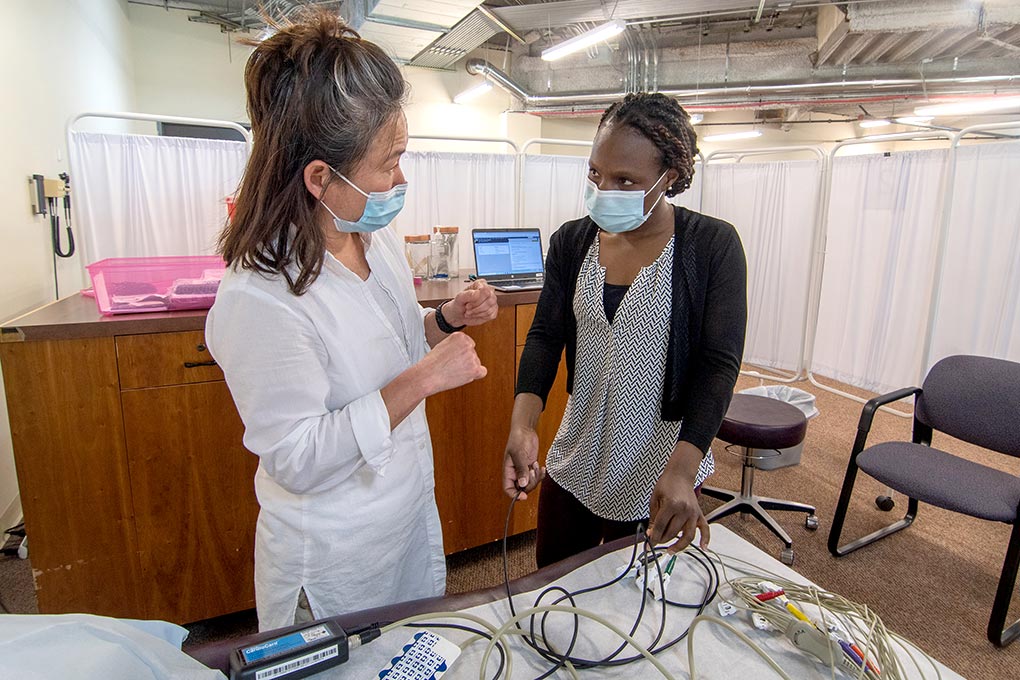
Finally, the clinic is hoping to work with Tualatin Ride Share to start offering transportation from Tigard and Tualatin out to Rolling Hills Church on a more consistent basis. The needs are seemingly endless, but those who work at the clinic simply keep moving forward, grateful for the services that they can provide.
“We’re always out there looking for new ways to get money, but we have a great team and a good group of volunteers,” Kosik said. “Because they have been here for the last few years, they really work well together. A lot of volunteer organizations have a high turnover rate, but we’ve been really lucky to have our providers pretty consistent.”
For more information on Tualatin’s Borland Clinic, visit www.borlandclinic.org.




